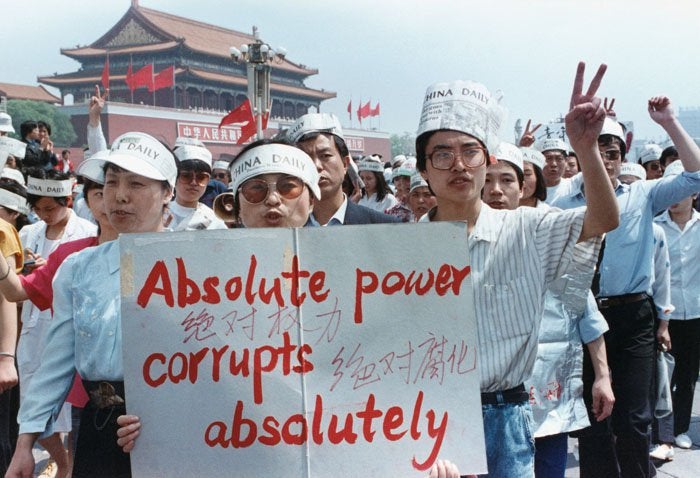I’ve spent a lot of time thinking about what I have always disliked about double-standards (despite still having a few of my own). It’s related to something I’ve also spent a lot of time trying to figure out: the common denominator between all people who have done historically horrible things — the Holocaust, the Cultural Revolution, the Cambodian genocide, the Uyghur genocide, and so on. It’s got little to do with left/right politics, but instead it’s what has often been called “the zeitgeist”, or “the spirit of the age”. In other words, when people do what other people are doing because it’s what everyone else is doing. When they aren’t thinking, but conforming.
What really bothers me about hypocrisy is that it’s irrefutable proof that people don’t actually believe in the things they purport to. If you say you believe in freedom of speech, but you don’t believe people who say things that you don’t like should have freedom of speech, then you don’t believe in freedom of speech. You don’t value it — you value the appearance of saying you value it while acting the opposite. If you have beliefs you can’t comfortably defend, then you likely don’t actually believe in those things. You believe in them by chance, because you adopted those positions from those around you. As a frequently used example, if say that all life is sacred and are anti-abortion on those grounds while being adamantly hawkish about killing people accross the world before exhausting diplomatic options, then you don’t really believe life is sacred.
So what disturbs me about people who don’t believe in the things they claim to believe, who adopted their beliefs because they sounded good or because they were popular or “safe” to have, is that they have those “beliefs” completely by coincidence.
Psychologically, there is just one difference between someone who thinks all democrats hate America and want to see it destroyed and someone who thinks all republicans hate poor people and minorities is that they happened to be in an environment where those views are condoned. Many on the left and on the right are precisely the same kind of useful idiot. The same kind of useful idiot who turned in their Jewish neighbors to the SS, or reported their parents to the Red Guard for being anti-revolutionaries because its in the spirit of the times. A dangerous liability, because they can be easily manipulated into doing horrible things.
So that’s indeed quite depressing, but there is one upside. For as long as there have been useful idiots caught up in the zeitgeist, there have been people who had ideals and values that they wouldn’t compromise. People listened to their morals and refused to comply even when it could (and often did) cost them their mortal lives. As far as I can tell, for as long as there have been people who have done horrible things to others, there have been people who refused to, often at great sacrifice. That gives me hope.

